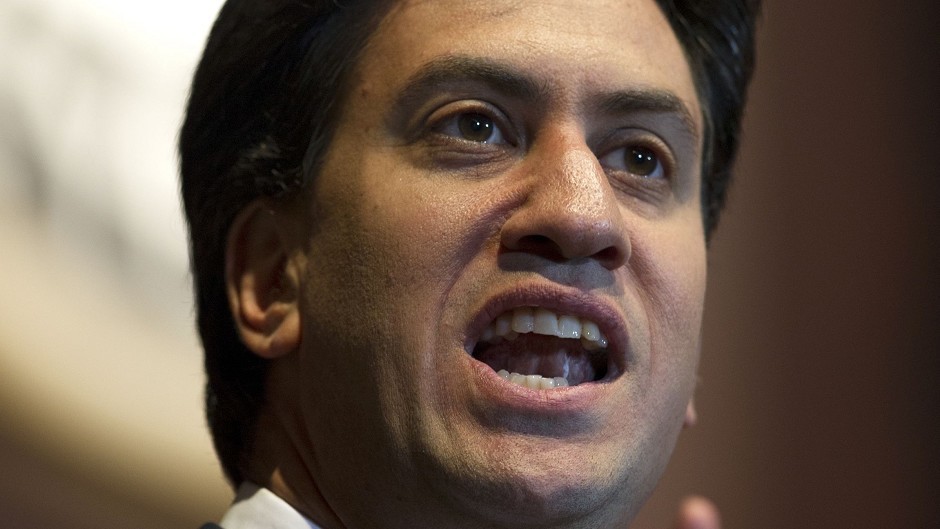A think-tank has called on Labour to be more “radical” in plans for further devolution in the event of a No vote next month.
Reform Scotland said the Scottish Parliament should be given powers to raise the bulk of what it spends.
Earlier this year the three unionist parties reported on their devolution plans. Both the Liberal Democrat and Conservative commissions recommended the devolution of the entirety of income tax, which would lead to the Scottish Parliament raising around 40% of what it spends.
Reform Scotland said in contrast Labour proposed only “tinkering” with the Scotland Act 2012, increasing the amount of income tax raised in Scotland from 10p to 15p.
Speaking ahead of Labour leader Ed Miliband’s visit to Glasgow tomorrow, Reform Scotland chairman Ben Thomson said: “The Labour devolution commission’s interim report was genuinely radical, but its final report was a damp squib.
“Whilst aspects of the report could be welcomed, such as the devolution of housing benefit and the enshrining of the permanence of the Scottish Parliament, it was a generally timid report which showed no real ambition for the future of devolution.
“Labour has been outflanked by both the Lib Dems and the Tories, who currently look like the parties of progress when it comes to devolution. However, it is not too late for Labour to join the party.
“Ed Miliband can help Labour reclaim its lost tag of the ‘party of devolution’ by agreeing to a more radical transfer of power. He could start by committing to match the Lib Dem and Conservative proposals on income tax.”
